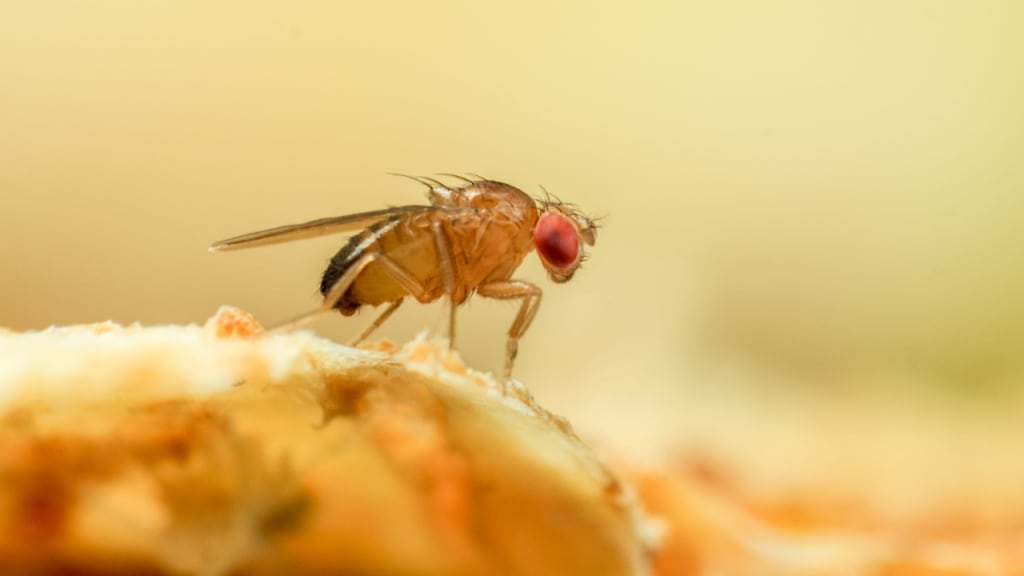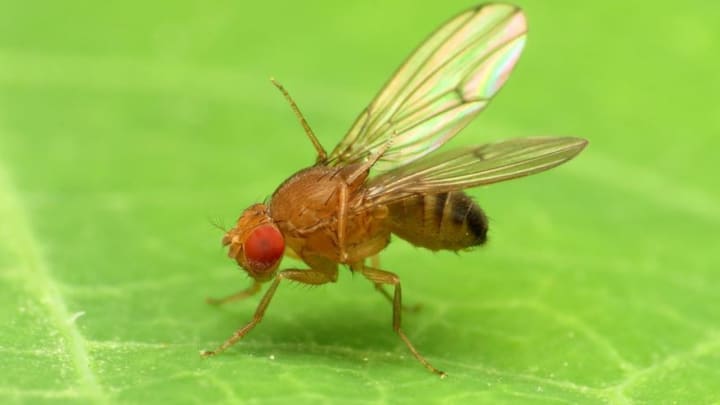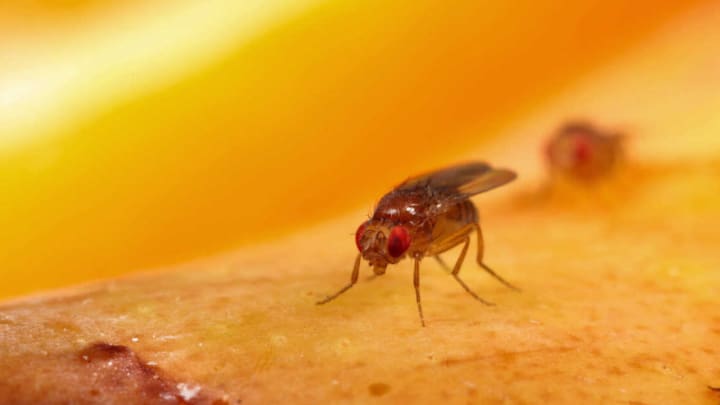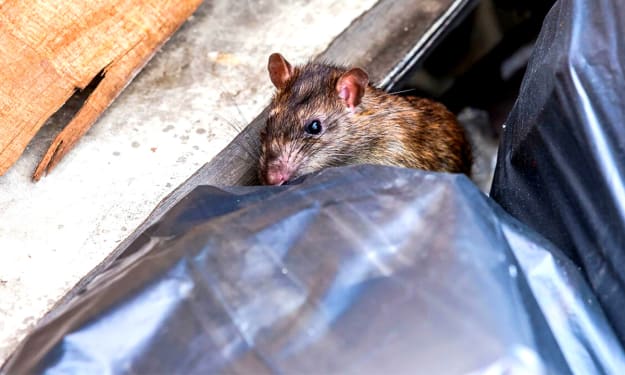How To Get Rid of Fruit Flies in Plants
Dealing with fruit flies infestation in your garden.

If you've ever been unfortunate enough to have fruit flies buzzing around your potted plants, then you know how aggravating they can be. Not only are they a nuisance, but they can also be a sign that your plant is in poor health.
Luckily, there are several steps you can take to get rid of fruit flies in plants and restore your garden to its former glory. Keep reading for tips on how to get rid of pesky fruit flies for good!
Why are Fruit Flies Attracted To Plants?
1. The Smell
One of the primary reasons that fruit flies are attracted to potted plants is their smell. Fruit flies are attracted to the sweet smell of fruits and vegetables, and potted plants often have a strong scent due to the high concentration of these compounds.
2. The Color
Another reason that fruit flies are attracted to potted plants is their color. Fruit flies are attracted to bright colors, and potted plants often have brightly colored flowers or fruits.
3. The Heat
Potted plants often emit a lot of heat, which can attract fruit flies. Fruit flies are attracted to warmth, and the heat emitted by potted plants can be a major attractant.

4. The Moisture
Potted plants also tend to be quite moist, which is another factor that can attract fruit flies. Fruit flies are attracted to moisture, and the high humidity levels often found around potted plants can be very appealing to them.
5. The Food
Of course, one of the main reasons that fruit flies are attracted to potted plants is the food. Potted plants often have a variety of fruits and vegetables growing on them, which can provide an ample food source for fruit flies.
When is the Fruit Flies Season?
Fruit flies may survive in a variety of climates. The presence of a food supply typically dictates when they will manifest.
There will be more people due to the abundance of fruit that will be ripening throughout the harvest season in late summer and into fall (October). As a result of the law of supply and demand, the fruit will become less expensive, and more households will buy it.
When you choose your own fruit and vegetables for the table, you run the risk of unintentionally bringing some of these bothersome creatures inside. Before bringing the product inside, it is advisable to wash it outside.
How To Get Rid of Fruit Flies in Plants
Now that we know what attracts these insects to your plants, we can take some steps in order to get rid of them efficiently.
Turn the Soil
Fruit flies consume organic debris that has decomposed in the soil as well as any fungi that may be growing there or in the plant's folds and crevices. Additionally, they will lay their eggs close to the soil's surface, where the larvae can feed on the microorganisms that live in the moist, dark soil.
Regular soil disturbance can disrupt the breeding cycle. Turning the soil's surface over will allow the eggs or larvae to be exposed to the dry, bright air above the ground.
Another option is to create a barrier that is difficult for fruit fly larvae and nymphs to pass through between the soil and the open air. A heavy covering of fine gravel is a good fix.
Allowing the topsoil layer to totally dry out is another way to endanger the eggs and larvae, but make sure the plant can withstand this brief dry spell.
It might be time to repot your plant if the issue doesn't go away.
Change Watering Routine
Fruit flies prefer moist environments to grow. All they require to begin reproducing is a small amount of moisture.
So think about altering your watering routine. Reduce watering if your indoor plants require less than what you are now providing. It will aid in drier conditions, which will aid in the management of fruit flies in your indoor plants.
Get a moisture sensor if you have trouble estimating the amount of moisture in the soil. You can determine how damp the soil is using this instrument.

Traps
Beer, vinegar, and wine are all attractors to fruit flies, so you may combine any of them with some dish soap to make a trap.
Place some food wrap over the container after you've poured the solution inside. To let the fruit flies into the trap, poke holes with a toothpick in the wrap. As soon as they get inside the container, they will drown in the solution and be unable to get out due to the covering.
Wait after setting the trap close to the diseased plants. Sure enough, you'll see a number of fruit flies drown in the solution. Regularly remove the dead flies.
Alternatively, you can use a trap with rotten fruit. This trap is comparable to the vinegar and dishwashing liquid mixture. Use rotting produce to lure fruit flies into a trap rather than tossing it away.
The rotting produce should be put in a container and covered with food wrap. Make sure the food wrap has holes the size of toothpicks so that the flies may enter. Once inside, get rid of the rotting fruit and the fruit bugs you've managed to trap.
Due to their inability to see at night, fruit flies can also be effectively eliminated with the candle trap. As a result, they would rush to any source of light they could locate. What if the source of light they fly to is a trap?
The candle trap is exactly what it sounds like. The fruit burns to death as it flies too close to the candle flame. Place a water dish under the candle to double-check their demise by ensuring that any pests that don't burn to death will drown in the water below.
Repelling Plants
A few fragrant potted plants around the house are always a welcome touch to any indoor or outdoor garden. Particularly if the plants effectively ward off fruit flies.
1. Basil
Basil is a popular herb that can be used in a variety of dishes. But did you know that it can also help to repel fruit flies? Basil contains a compound called eugenol, which has been shown to be effective at repelling fruit flies.
2. Bay leaves
Bay leaves are another common ingredient that can be used to repel fruit flies. Like basil, bay leaves contain eugenol, which is a compound that is known to be effective at repelling these pesky insects.
3. Citronella
Citronella is a common ingredient in mosquito repellents. But did you know that it can also help to repel fruit flies? Citronella contains compounds that are known to be effective at repelling fruit flies and other insects.
4. Lavender
Lavender is a popular scent that many people enjoy. But did you know that it can also help to repel fruit flies? Lavender contains compounds that are known to be effective at repelling these pesky insects.
5. Peppermint
Peppermint is a popular flavor that many people enjoy. But did you know that it can also help to repel fruit flies? Peppermint contains compounds that are known to be effective at repelling these pesky insects.
Conclusion
There you have it, folks! Now that you know how to get rid of fruit flies in plants, your life will be much easier. No more tiny insects buzzing around your head and getting caught in your hair!
Be sure to share this information with your friends so they can enjoy the benefits as well. Thanks for reading and good luck!






Comments
There are no comments for this story
Be the first to respond and start the conversation.